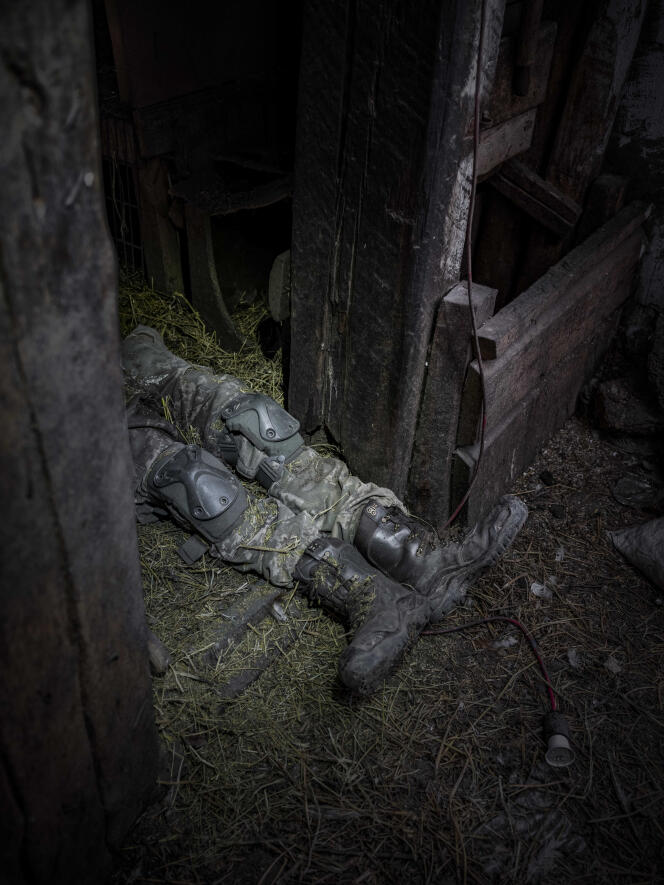“An inconvenient place”, by Jonathan Littell and Antoine d’Agata, Gallimard, 350 p., €21, digital €15.
A peaceful street, facades “coquettes”shops, then, ” suddenly “, a gutted house. Further on, uprooted trees, car wrecks, a piece of sheet metal creaking in the wind. Or this cellar, which bears the marks of the repeated rapes committed by Russian soldiers on several women and the assassination of one of them, found after their departure “head exploded, legs and stomach slashed with a knife”.
In May 2022, writer Jonathan Littell and photographer Antoine d’Agata are in Boutcha, on the outskirts of kyiv, for “M Le magazine du Monde”. They have in hand the plan, which has just been published by New York Times, killings committed by Russian forces when they occupied the city, from February 27 to March 31. According to the Prosecutor General of Ukraine, the bodies of 637 civilians were exhumed, or 12% of the population remaining there after the start of Russian aggression on February 24. Life resumes with a strange gentleness, but the explosion of crime resurfaces everywhere as the two men advance through the streets. Mixed texts and images, An inconvenient placethe book they drew from this report and others, constitutes a chilling topographical survey.
Jonathan Littell observes and listens, collects testimonies, cross-checks them, interprets them, places them in the places he surveys. Antoine d’Agata, at his side, captures a face, the gesture of a woman telling a story, an open grave, a torture room, bodies thrown to the ground. Through his art of raw appearance – tight, dense shots, low light, as if trapped by bodies and materials – the photographer invents a visual language as effective in bringing to light the concrete reality of war as is the Littell’s precise, hammered, obsessive language.
But he also shares with him the helplessness of the witness who comes too late. A feeling of irremediable distance that runs through this ardent and cautious book, where accepting to remain on the threshold of an unimaginable horror becomes a method of investigation. Which was already at the heart of the project which had first taken them to Ukraine. It was early 2021. At the suggestion of a friend, Jonathan Littell decided to write a book about Babi Yar, in the north of Kiev, where, from September 29, 1941 to the end of the Nazi occupation of the city, in November 1943, 100,000 people, two-thirds Jewish, were murdered by the Germans with the help of Ukrainian auxiliaries.
You have 44.68% of this article left to read. The rest is reserved for subscribers.
